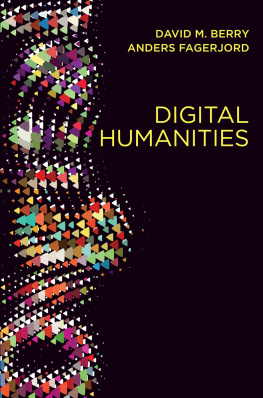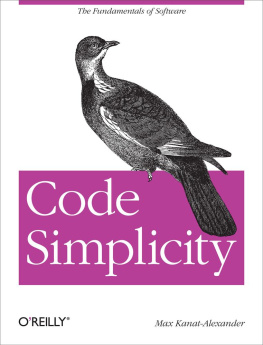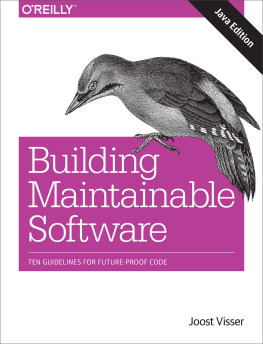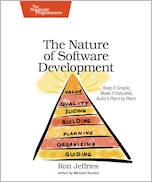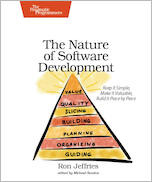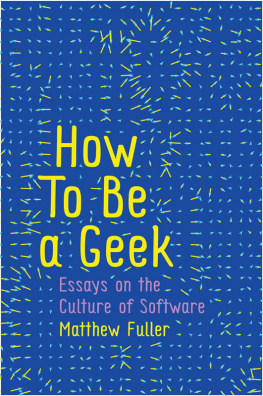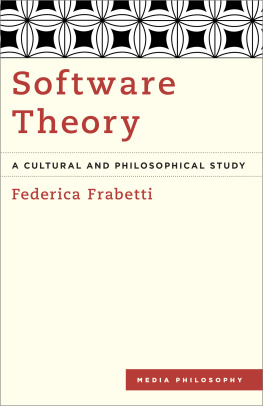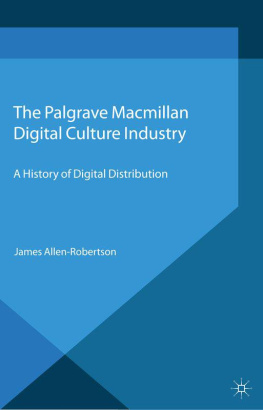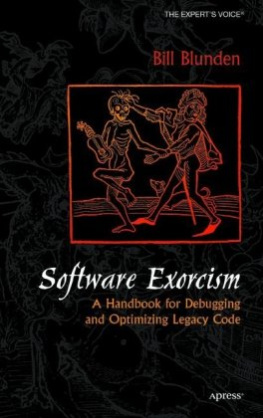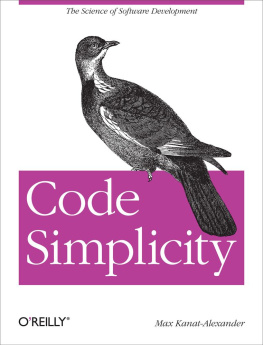Acknowledgements
Writing remains to me an unusual practice that transforms my experience of the world whilst under the spell of writing. This book has had a particularly intensive birth, written as it is in the middle of the academic year and with everyday life swirling around it with all the attendant distractions. It has emerged from a number of related research themes that continue to guide my work and are focused on the challenge to thinking that is posed by technology. This work has been influenced, inspired, guided and challenged by such a plethora of authors that it is not possible to list them all here. However, I feel that they are all flowing in different modulations and intensities through the text that follows. I pass on this text in the hope that future readers will find something interesting in a subject I continue to find deeply fascinating.
I would like to take this opportunity to thank Nikki Cooper, the Callaghan Centre for the Study of Conflict, Power, and Empire, and the Research Institute for Arts and Humanities (RIAH) at Swansea University for funding the workshop, The Computational Turn, which explored key issues around software. Thanks also to N. Katherine Hayles and Lev Manovich and the other participants at this workshop who enthusiastically discussed many of the themes pertinent to this book in a rigorous and critical setting. I would also like to thank the many people who gave comments and suggestions to the text as it developed. In particular, were presented at the New Materialisms and Digital Culture: An International Symposium on Contemporary Arts, Media and Cultural Theory at Anglia Ruskin University, and I would like to thank Jussi Parikka and Milla Tiainen for their invitation. I would also like to make a special note of thanks to Trine Bjrkmann Berry for reading and correcting early drafts of the chapters.
This book would not have been possible without the support and generosity of a great number of friends and colleagues at Swansea University who were always available to discuss subjects I found interesting. In particular, Claes Belfrage and Christian De Cock and the participants in the Cultural Political Economy research group, who may not realise that many of the ideas in the book were also aired there. I would also like to thank students on the MA Digital Media and my PhD students: Faustin Chongombe, Leighton Evans, Mostyn Jones, and Sian Rees for their useful contributions and discussions over the course of the year. Finally, I would like to thank my wife, Trine, and my children Helene, Henrik Isak, and Hedda Emilie, for waiting patiently, seemingly forever, to go to the beach.
DMB
Swansea, July 2010
Bibliography
ACE (n.d.) The Alliance for Code Excellence, retrieved 1/7/2010 from http://codeoffsets.com/
Adams, R. (2010) All your Twitter belongs to the Library of Congress, Guardian, retrieved 03/08/2010 from http://www.guardian.co.uk/world/richard-adams-blog/2010/apr/14/twitter-library-of-congress
Alvarez, R. M. and Hall, T. E. (2008) Electronic Elections: The Perils and Promises of Digital Democracy. Oxford: Princeton University Press.
Arendt, H. (1971) Martin Heidegger at Eighty, New York Review of Books, retrieved 11/05/2010 from http://www.nybooks.com/articles/archives/1971/oct/21/martin-heidegger-at-eighty/
Arnold, M. (2009) Culture and Anarchy. Oxford: Oxford University Press.
Arthur, C. (2010) Digital Economy Bill Rushed Through Wash-up in Late Night Session, Guardian, retrieved 14/03/2010 from http://www.guardian.co.uk/technology/2010/apr/08/digital-economy-bill-passes-third-reading
Atton, C. (2004) An Alternative Internet: Radical Media, Politics and Creativity. Edinburgh: Edinburgh University Press.
Baltimoremd (n.d.) Windows 2000 Source Code, retrieved 1/6/2010 from http://www.baltimoremd.com/content/win2000source.html
Bassett, C. (2007) The Arc and the Machine: Narrative and New Media. Manchester: Manchester University Press.
BBC (2004) Microsoft source code leaked out, BBC News, retrieved 1/3/2010 from http://news.bbc.co.uk/1/hi/technology/3484545.stm
BBC (2009) No 10 apology over slur e-mails. The BBC News Website. Retrieved 19/11/09 from http://news.bbc.co.uk/1/hi/7994408.stm
Beckett, C. (2008) Supermedia: Saving Journalism So It Can Save the World. London: WileyBlackwell.
Beer, D. and Gane, N. (2004) Back to the Future of Social Theory: an Interview with Nicholas Gane. Sociological Research Online, retrieved 10/02/09 from http://www.socresonline.org.uk/9/4/beer.html
Beggs, E., Costa, J. F. and Tucker, J. V. (2009) Physical Experiments as Oracles, Bulletin of the EATCS, No. 97, pp. 13751, February 2009.
Belfrage, C. (2008) Towards Universal Financialisation in Sweden?!, Contemporary Politics (special issue on The Global Politics of Finance Capitalism), 14 (3): 27796.
Beniger, J. R. (1989) The Control Revolution: Technological and Economic Origins of the Information Society. London: Harvard University Press.
Benkler, Y. (2002) Coases penguin, or Linux and the nature of the firm, The Yale Law Journal, 112: 369446.
Benkler, Y. (2003a) Freedom in the Commons, Towards a Political Economy of Information, 52, Duke L.J. 1245.
Benkler, Y. (2003b) The Political Economy of Commons, Upgrade, Vol. IV., No.3, June 2003.
Benkler, Y. (2004) Sharing Nicely: On Shareable Goods and the Emergence of Sharing as a Modality of Economic Production,. The Yale Journal, 114: 273, 274358.
Benkler, Y. (2006) The Wealth of Networks. London: Yale University Press.
Berry, D. M. (2004) The Contestation of Code, Critical Discourse Studies, 1(1), 6589.
Berry, D. M. (2008) Copy, Rip, Burn: The Politics of Copyleft and Open Source. London: Pluto Press.
Berry, D. M. and Moss, G. (2006) Free and Open-source Software: Opening and Democratising e-governments Black Box, Information Polity, 11 (2006) 2134.
Beunza, D. and Muniesa, F. (2005) Listening to the Spread Plot, In Making things Public: Atmospheres of Democracy, Bruno Latour and Peter Weibel (eds) (2005). London: MIT Press, pp. 62833.
Beunza and Stark (2004) Tools of the Trade: The Socio-technology of Aarbitrage in a Wall Street Trading Room, Industrial and Corporate Change, Vol. 13, No. 2: 369400.
Biancuzzi, F. and Warden, S. (2009) Mastermind of Programming: Conversations with the Creators of Major Programming Languages, Sebastopol: OReilly.
BJS (2010) Data sorting world record: 1 terabyte, 1 minute, retrieved 27/07/2010 from http://scienceblog.com/36957/data-sorting-world-record-falls-computer-scientists-break-terabyte-sort-barrier-in-60-seconds/
Black, M. J, (2002) The Art of Code. PhD dissertation, University of Pennsylvania.
Black, R. (2003) E-voting: Democratic or dangerous?, retrieved 14/03/2010 from http://news.bbc.co.uk/1/hi/world/americas/3169706.stm
Black, R. (2010) CRU climate scientists did not withhold data, BBC News, retrieved 7/7/2010 from http://news.bbc.co.uk/1/hi/science_and_environment/10538198.stm
Blackbox Voting (2010) Black Box Voting - Americas Election Watchdog Group, retrieved 14/03/2010 from http://www.blackboxvoting.org/
Blattner, W. (2006) Heideggers Being and Time. London: Continuum.
Bloom, P. (n.d.) Computing Fantasies: Psychologically Approaching Identity and Ideology in the Computational Age, retrieved 14/3/10 from http://www.thecomputationalturn.com/
Bogoslaw, D. (2007) Big Traders Dive Into Dark Pools, Business Week, 3 October 2010, retrieved from http://www.businessweek.com/investor/content/oct2007/pi2007102_394204.htm
Boltanski, L. and Thvenot, L. (2006)


